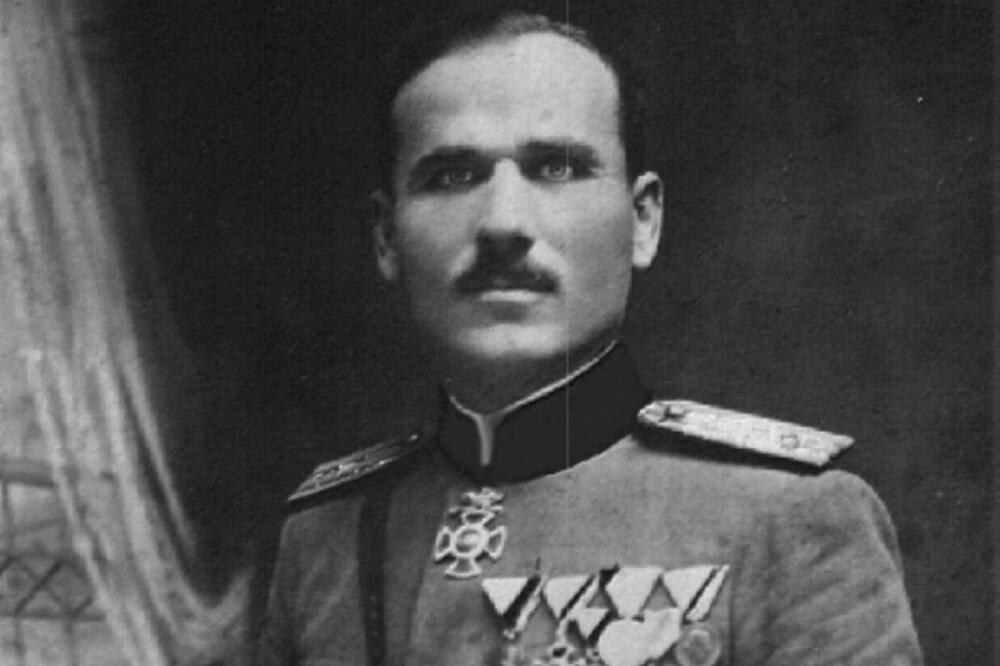I remember hearing that name for the first time when I was a boy of seven or eight - it was probably 1974. Father and his friend, an educator and a bohemian, Dimo Bojanic, as soon as they drink they would pull - I'm going to tell you to ride your horse, the greengrocers are after you...
Since in those years and on similar occasions my brother and I mostly listened to songs about partisan and communist generals (Sava, Peko, Radovan Vukanović, Savo Burić, Budjoni, Timoshenko and the like), the appearance of this character required certain explanations. We were told that he was not a partisan, but that he was not a traitor either: he was for Montenegrin independence. But all those things were skipped over: it was important to tell the "event".
And the "event that explains everything" was the funeral of the guy who Krsto Popović killed when he himself died.
At the funeral, the story goes, everyone competes in smearing the old Montenegrin officer. Another personal detail: my mother, not without her daughter's pride, showed me a black and white photo of her father, my grandfather, a young partisan officer Dragutin Škuletić. A striking and handsome officer, he wears decorated pillows. “This is from the funeral Raka Mugoša".
When the politicians had their say, the murdered man's mother asked that she too say goodbye to her son in the traditional way. This was followed by a famous complaint: "Did I tell you, son Rako, that Krsto Zrnov is not everyone. He is not Krsto as they say, but he is a knight of Montenegro..."
The whole story was retold for decades with the passion with which Montenegrins recount funeral rituals and events. The complaint will be published with accompanying clarifications Novak Kilibarda, then a young professor of folk literature, in 1969. And drink - a party punishment. He was accused of spreading "Montenegrin nationalism".
This is not the only bizarreness in this whole story, which almost resembles an urban myth. The alleged killers of Krsto Zrnov, decades later, as atypical communist functionaries, will make a significant contribution to the momentum of Montenegrin emancipatory ideas.
Therefore, the key energy for the creation of the myth of Krst Zrnov comes from these verses, from this attitude that the unhappy mother communicates so clearly and defiantly. Non-standard moral reflex and her poetic gift are the cornerstone of that myth. And that woman's name is not even remembered in appropriate, of course, machismo interpretations. She is just "the mother of Raka Mugoša".
The power of this story was so great that it was left speechless not only by those inclined to the Montenegrin national feeling. It is almost impossible to recount today: the entire ten-minute performance, the year is 83 or 84, when Ranko J, going down the stairs to the then beautiful garden of Ribnica, begins to complain, dramatically sings the beginning of this lament. In a similar mood, the table responds Micho T. Those present followed the performance with the greatest possible attention, so convincing were these two (un)expected fans of Krst.
Momir Marković he dedicated a play to him (he played him in the play Petar Banićević), and code Andrei NikolaidisIn Mimesis, there is a humorous place when the myth of To El Komandante Krstu Zrnov merges with the myth of Fr Che Guevara.
Despite all doubts, and the flourishing of Krst's popularity, it seems sad to me today when I see that prominent criminals are photographed under Krst's portrait. As tragic and atypical as Krsto Zrnov was, he was also a quisling, and today he is celebrated (banally, like everything they do) by those who swear by anti-fascism. But the story of our heroes is always the story of us today. Krsto is the ideal hero of the postmodern age - an elusive and elusive subject, actually a Rorschach stain of the labyrinth of Montenegrin modern history, in which we all see (only) what we want.
Because the impression is that the halo of a "mythical hero" was not brought to him by his own actions - he was the leader of an uprising that did not happen and the winner of battles that did not take place - but precisely by the incredible gesture of a (forgotten) woman who, not at all Montenegrin, had the guts to oppose the Power.
But who knows - maybe all this confusion generated by the various layers of meaning in this story is the true emblem of current Montenegro?
Bonus video:





